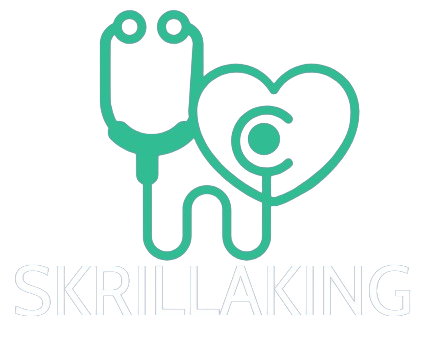For many men, discussing their mental health struggles can be a difficult prospect. Fortunately, resources and support systems now exist to help men break down the barriers that prevent them from seeking help. In this article, we’ll explore the importance of men’s mental health, the ways in which men can get help, and the resources available to support male mental health.
1. World of Hurt: Uncovering the Struggles of Men’s Mental Health
The struggles of men’s mental health is a difficult topic that often goes untold. Many men feel that society expects them to be emotionally strong and they are taught that it is “weak” to talk about their feelings. Culturally, men often don’t have the same resources or support systems as women do in regard to seeking help, and so there’s a lot of pain that goes unaddressed and unaccounted for.
Moreover, men who do seek help may be met with resistance from family, friends, or even their teachers or bosses. In a society where mental health is overlooked and minimized, even considering the idea of talking to someone about his struggles can be difficult. Even with the various online resources available, accessing the right help isn’t always easy or obvious.
The Stigma of Men Needing Help
The stigma that comes with mental health issues can be even more intensely felt by men that it is by women. There’s a pressure to stay silent, to put on a brave face, to “man up”. Without recognition and support from those around him, a guy may feel ashamed for not being able to “handle” his problems himself.
The fact is that mental health can be just as tenuous and complicated for men as for anyone else. It’s important to recognize that men can suffer from depression, anxiety, anger, and many other forms of mental health issues. Some of the biggest struggles comes when men try to talk about their mental health, but don’t know how.
Resources for Men in Need
Fortunately, there are plenty of resources available to men struggling with mental health issues. Here are a few tips on how to effectively access and use these resources:
- Find support from friends or family
- Attend a therapy or counseling session
- Look into hotlines such as National Alliance of Mental Illness (NAMI)
- Keep a journal and share it with someone you trust
Men can take the first step towards recognizing and dealing with their emotions and feelings in a completely safe and confidential environment. It can take courage to reach out and ask for help, but doing so can have a huge positive impact on a guy’s life.
2. Perspectives from the Other Side: Voices on Male Mental Health Issues
For too long, male mental health has been an underdiscussed topic. We need to hear from the people whose experiences it affects to learn what it’s really like to live with a mental illness. These conflicting perspectives paint a multi-dimensional picture of what life can be like living with male mental health issues.
- John, 29: “Having depression is a major part of my life. It’s affected me in the obvious ways – in my sleeping and eating habits, energy levels, motivation – but it’s also had other, subtle impacts too. Something as simple as going on a date can be a huge challenge. There’s always that fear of someone seeing through my veil of put-on enthusiasm or figuring out that I’m living with depression.”
- Dave, 42: “Therapy has been the biggest help in my life as someone with anxiety and OCD. I was resistant at first; I felt like it was a sign of weakness to be talking to a ‘shrink’. But I’m so much more confident now in facing my struggles and I don’t feel like such an outcast anymore.”
- Michael, 55: “My biggest challenge has been accepting that I’m an imperfect person. I was lucky enough to find a great therapist who helped me confront painful memories and learn to love myself and see that I am worth something despite my depression and bipolar disorder.”
These voices and more from around the world are beginning to be heard. Each perspective is valuable to the overarching goal of normalizing male mental health discussions. With more people coming to the table, it encourages a sense of community and understanding that will help those living with male mental health issues.
3. Knowing When to Reach Out: Tips for Navigating Mental Health Resources
It’s important to know when to reach out to a mental health professional when it comes to managing your mental well-being. Here are a few tips for knowing when to seek help and navigating mental health resources.
- Know the warning signs: Losing interest in activities you previously enjoyed, changes in mood or behavior, difficulty performing daily tasks or managing your feelings, difficulty concentrating or sleeping, and thoughts of self-harm are all common warning signs that you might need help.
- Do your research: There are a multitude of mental health resources available, including therapists, online support networks, and other professionals. Do your research to find out which one is best for you and fits your budget.
- Be honest and open: Once you have reached out for help, be honest with yourself and the professional about what you are feeling. Mental health professionals are here to help and it’s important that they have as much information as possible to be able to provide you with the best advice and resources.
Take the time to find the right person to talk to and do not be afraid to ask questions. A quality mental health professional should make you feel safe and heard. Most importantly, remember that seeking help is a sign of strength, not weakness.
4. Reclaiming Your Strength: Benefits of Seeking Professional Mental Health Support
It can be very difficult, however, to open up and face our feelings and experiences. Professional mental health support, however, can be beneficial in reclaiming that strength.
- Help Navigate Difficult Feelings – Professional mental health support can provide the tools to help make sense of and navigate difficult feelings. Having someone other than a family member or friend to talk to can provide an invaluable sense of relief for many.
- Accountability – Having professional mental health support can provide accountability for our healing. With guidance from a professional, we can create smaller, achievable goals that will ultimately contribute to our overall development.
- Normalization – Having professional mental health support can provide an opportunity to learn that what we’re feeling is normal. Knowing that we’re not alone in our experiences can provide a significant sense of relief and of hope.
- Opportunity to Reflect – Professional mental health professionals can provide a space where we can reflect on our experiences, thought patterns, and feelings in a safe and supportive environment. This can be empowering and transformative.
Finding, and ultimately, accessing professional mental health support can be positively transformative. Reclaiming strength is possible, and we have access to the support that will help us get there.
5. On the Path to a Brighter Future: An Overview of Men’s Mental Health Support Resources
Men’s mental health support resources are becoming more and more widely available every day. With the stigma surrounding mental health being slowly dismantled, men now have greater access to a range of outlets to help them work through their issues. From online networks, to counseling to activities – there are many paths to mental wellness.
Online Resources. There are some great websites offering specialist advice and guidance, such as Men’s Mental Health Network which provides online discussion forums, therapy resources and blogs. Websites like Calm Clinic provide helpful daily tips, calming tools, and guided meditations to better manage anxiety and depression.
Counseling. It’s important to look out for counseling services in your local area for those hoping to discuss mental health issues in depth. Organizations like NAMI Mens Health Clinic focus solely on men’s mental health and offer a safe, nonjudgmental space to talk. Trained counselors are there to help you break down and process anything that’s going on, so you can find a way forward.
Activities. Practical activities can also be really useful in managing mental health issues. Hobbies like art, cookery, writing, and sports can often be therapeutic. These activities can help you get closer to those around you and stay positive through difficult times. Other activities such as yoga and breathing techniques can really help alleviate symptoms and create feelings of inner-peace.
- Men’s Mental Health Network
- Calm Clinic
- NAMI Mens Health Clinic
Men’s mental health issues should never be taken lightly or ignored because the consequences can have long-lasting effects on both the individual and their family. We hope this article has inspired you to seek help or resources that can help you or a loved one cope with mental health issues. After all, men are strong and yet even the strongest of us all need a helping hand sometimes. Let us know in the comments if you have any further questions or thoughts on men’s mental health support.


